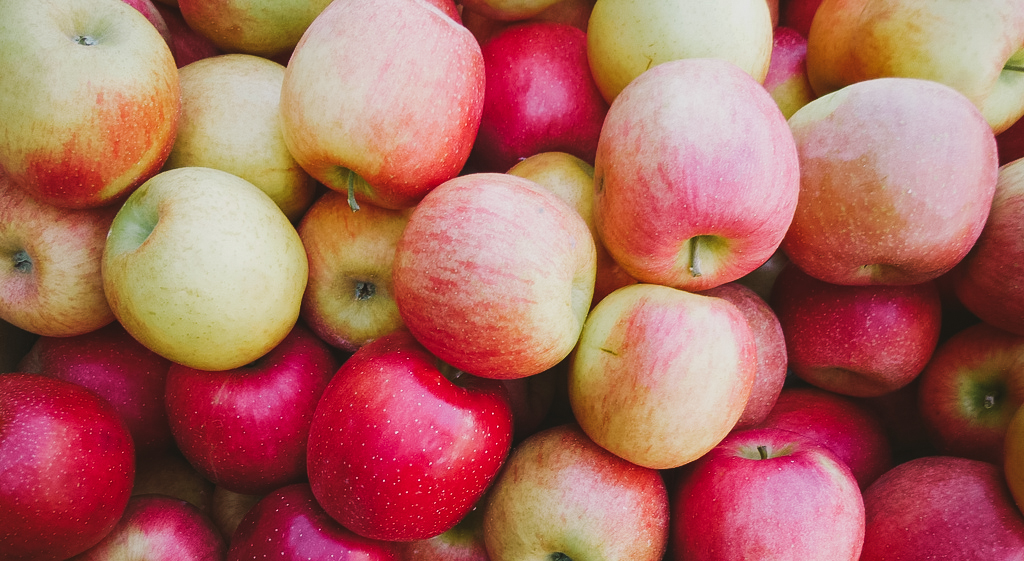If the old adage is true—that an apple a day keeps a doctor away—then the world owes a lot to Washington.
The Evergreen State produces more than half of all apples grown in the United States for fresh eating, according to the Washington Apple Commission. In fact, Washington apples are sold in all 50 states and more than 50 countries, meaning that many a person enjoy the fruits of Washington’s labors.
For Washington residents, our expansive apple orchards are one reason it’s easy to buy and enjoy local fruit.
Each and every Washington apple is picked by hand, and there are more varieties than a person can remember. The industry here is based primarily on seven principal varieties: Red Delicious, Gala, Fuji, Golden Delicious, Cripps Pink and Honeycrisp.
But an enterprising eater can sink their teeth into many more varieties, including rare heirlooms. Or search farther afield for your favorite of more than 7,500 varieties grown worldwide.
The sweet, crunchy apple is a large part of the economy and culture in Eastern Washington, home of Nature Conservancy Leadership Council and former board member Jack Toevs. For Jack, growing apples is a family operation, now involving his son. “The family has been involved in farming for centuries,” he said. “It’s our heritage.”
He’s observed many changes over the years. For example, the Red Delicious has been overtaken in popularity by the Gala. And many growers – himself included – have gone organic, meeting the public’s demand for more healthy and sustainable fruit. Our state cultivates 14,000 acres of certified organic orchards, according to the Washington Apple Commission.
It seems Washington has an ideal climate for apple production – particularly organic apples. “It’s a dry climate, with fewer problems for disease and insects. It’s just been a great place to grow apples,” said Jack.
In addition to serving as a Conservancy board member, Jack and his wife volunteer as stewards at the Conservancy’s Beezley Hills Preserve, which sits atop the hills visible from their orchard in the town of Quincy. This Eastern Washington preserve is awash with wildflowers every spring.
In Eastern Washington apple country you’ll find a strong connection between people and nature. That’s one of the reasons why The Nature Conservancy has a presence here, as well as in the Yakima Valley to the south and Skagit farmlands to the west. It’s the kind of win-win connection the Conservancy strives to create in communities everywhere we work: conservation that will bear fruit for generations.






















